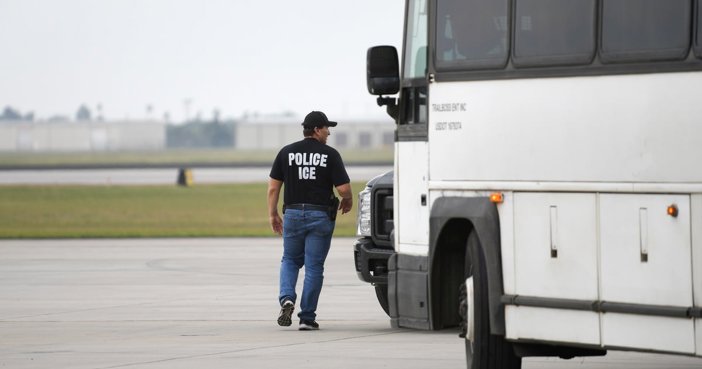
Texas Bill Mandates ICE Cooperation by Sheriffs
Texas lawmakers advance bill mandating all sheriffs collaborate with ICE, sparking debate over immigration enforcement.
Statewide Expansion of Federal Cooperation
The Texas House of Representatives granted preliminary approval on Saturday to a bill requiring sheriffs across the state to work with U.S. Immigration and Customs Enforcement (ICE) by serving federal immigration warrants in local jails.
Senate Bill 8, which passed 89–50, initially applied only to counties with populations over 100,000. However, an amendment from Republican Rep. David Spiller expanded its scope to include all counties in Texas. Spiller described the bill as the session’s most powerful indirect tool for enhancing border security.
The legislation must pass a final vote in the House before returning to the Senate for approval of the changes. If both chambers agree, it will head to Governor Greg Abbott, who has emphasized full cooperation with federal immigration authorities as a state priority.
Under the bill, sheriffs must enter into formal partnerships with ICE, known as 287(g) agreements. These arrangements allow federal immigration authorities to delegate certain enforcement powers to local law enforcement, including the ability to question inmates about immigration status and serve administrative warrants inside jails.
Expanded Powers and Enforcement Penalties
The legislation also permits ICE-authorized local officers to carry out immigration checks during routine duties, such as DUI stops—a model previously suspended over racial profiling concerns but revived during the Trump administration.
To enforce compliance, the bill authorizes the Texas Attorney General to sue sheriffs who refuse to enter into at least a basic “warrant service” agreement. Sheriffs may also choose to participate in broader ICE partnerships to fulfill the mandate.
To offset costs not reimbursed by the federal government, the bill includes grant funding for sheriffs’ offices that implement the program.
According to ICE data as of Friday, 72 law enforcement agencies in Texas have existing 287(g) agreements, with four more awaiting approval. Approximately 20% of those are “task force model” agreements, enabling immigration enforcement during regular police activities.
Filed by Republican Sen. Charles Schwertner, the measure aligns with President Donald Trump’s immigration enforcement strategy and could aid broader deportation initiatives. However, immigrant rights groups have voiced alarm. They argue that mandatory cooperation will intensify racial profiling and discourage undocumented individuals from reporting crimes or seeking assistance, fearing collaboration between police and ICE.
As the bill progresses toward becoming law, debate continues over its impact on community safety, law enforcement resources, and the balance between state and federal immigration roles.






